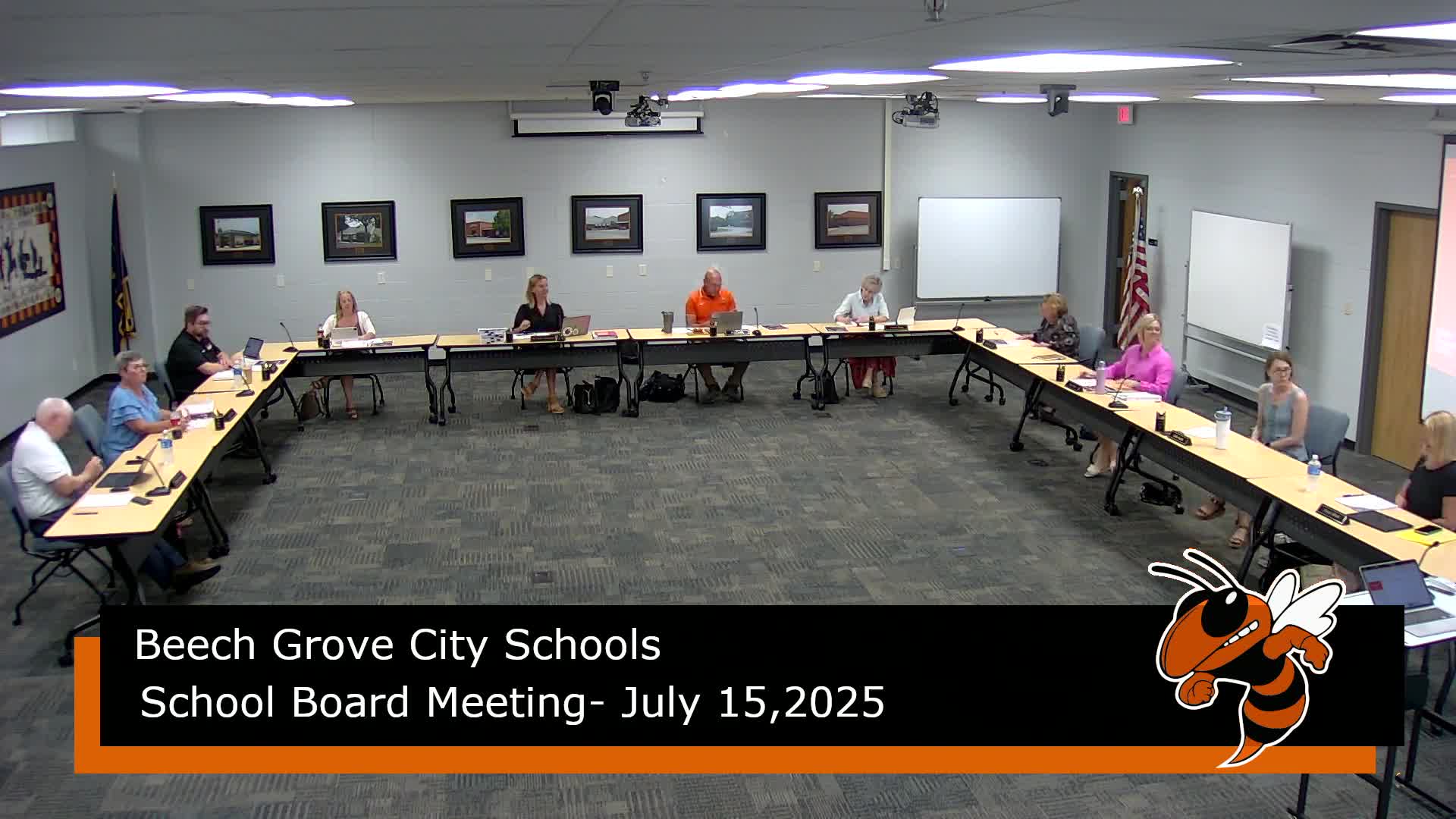Beach Grove technology director details cybersecurity upgrades, device and software changes

Summary
At a July 15 Beach Grove City Schools board meeting, Director of Technology Tim Ressler described staffing changes, virtualization and endpoint upgrades, changes to the district 1-to-1 device program, and new cybersecurity measures including a NIST assessment, multifactor authentication and ongoing vulnerability scans.
Tim Ressler, director of technology for Beach Grove City Schools, told the school board on July 15 that his department has reorganized staffing, moved core virtualization to a new vendor and bolstered cybersecurity protections.
Ressler said the department now includes three in-house technology support technicians (stationed at South Grove, the high school and one other location), three integration specialists who work with teachers, and a state data reporting and SIS specialist. "I call it a back to basics, type of thing," Ressler said about the presentation and the department's recent changes.
Ressler described a long-term partnership with 5 Star Technology Solutions as the district's managed service provider (MSP). Under that agreement, he said, 5 Star provides engineering support for infrastructure, backups, virtual servers and higher-level issues; it also recently added cybersecurity consulting including a NIST assessment and incident-response planning. "They support our infrastructure, our network, hardware, network hardware, our servers, our virtualization," Ressler said.
On core systems and hardware, Ressler said the district transitioned from VMware to Scale Computing last spring, with a five-year hardware warranty. "We transitioned from VMware to Scale Computing," he said, adding the move produced cost savings after price increases in the VMware market. He also said the district will finish rolling out Windows 11 desktops before October and that teacher devices were refreshed at the end of the previous school year.
Ressler outlined the district's student device strategy: kindergarten and first graders use Apple iPads; grades 2 through 12 use Chromebooks from multiple vendors (HP, Dell, Lenovo). He said student iPads were refreshed in spring 2024 and that the district is extending Chromebook lifecycles to five years for cost and sustainability reasons. To reduce loss and distraction, Ressler said the district has stopped routine take-home devices and now keeps student devices on campus.
On software, Ressler said Skyward remains the district's Student Information System and that the district retains Canvas for secondary exposure but will introduce Google Classroom for grades K–6 this coming year. "We decided, while we wanna keep Canvas and give our secondary kids exposure to Canvas... it makes sense for us to not use Canvas in the primary grades," he said.
Student safety and cybersecurity measures were a major focus. Ressler listed federal laws the district follows — FERPA (student records), CIPA (content filtering) and COPPA (collection of personal information) — and described tools the district uses, including a Google Workspace for Education Plus feature set, a content filter (Content Keeper), and a monitoring tool referenced as BARC. He said the district uses the Google admin investigation tool that comes with the paid Workspace license to diagnose security events and detect student-safety signals.
For cybersecurity posture, Ressler said the district purchased a next-generation firewall last spring and deployed next-generation antivirus across endpoints tied to a 24/7 security operations center. He also described mandatory multifactor authentication for staff with elevated privileges, monthly vulnerability scans, annual penetration testing and free phishing-simulation training provided by the state. "This and a couple other things ... give us a playbook, step by step steps that we have to take when and if the cyber incident occurred," he said of the incident response planning effort.
Board members expressed appreciation for the work. A board member commented, "Thank you for keeping our students safe, and thanks for keeping our corporations safe." The board did not take a formal vote tied to the presentation.
Ending: Ressler's presentation covered staffing, hardware, software and cybersecurity and outlined steps the district has taken to improve resilience and sustainability. The board received the update; no additional board action was recorded on the technology presentation during the July 15 meeting.

